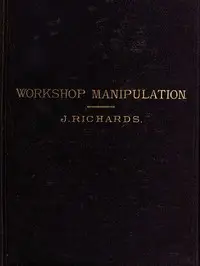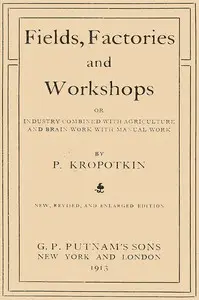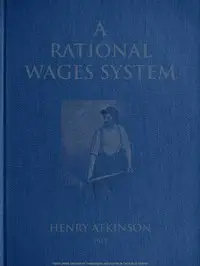"Shop Management" by Frederick Winslow Taylor is a book about running factories and workshops using science. The author talks about his time working in different shops and noticed that management was not very organized, and good management didn't always mean more money for the company. He saw that even though managers should keep a high profit, people were not developing them well. He believes that workers often slowed down on purpose because they thought they were being treated unfairly. Taylor proposes a new way of managing that uses science and fair treatment to make things more efficient and create a better workplace.

Shop Management
By Frederick Winslow Taylor
Discover how science and fairness can revolutionize factories, leading to better pay for workers and bigger profits for companies.
Summary
About the AuthorFrederick Winslow Taylor was an American mechanical engineer. He was widely known for his methods to improve industrial efficiency. He was one of the first management consultants. In 1909, Taylor summed up his efficiency techniques in his book The Principles of Scientific Management which, in 2001, Fellows of the Academy of Management voted the most influential management book of the twentieth century. His pioneering work in applying engineering principles to the work done on the factory floor was instrumental in the creation and development of the branch of engineering that is now known as industrial engineering. Taylor made his name, and was most proud of his work, in scientific management; however, he made his fortune patenting steel-process improvements. As a result, scientific management is sometimes referred to as Taylorism.
Frederick Winslow Taylor was an American mechanical engineer. He was widely known for his methods to improve industrial efficiency. He was one of the first management consultants. In 1909, Taylor summed up his efficiency techniques in his book The Principles of Scientific Management which, in 2001, Fellows of the Academy of Management voted the most influential management book of the twentieth century. His pioneering work in applying engineering principles to the work done on the factory floor was instrumental in the creation and development of the branch of engineering that is now known as industrial engineering. Taylor made his name, and was most proud of his work, in scientific management; however, he made his fortune patenting steel-process improvements. As a result, scientific management is sometimes referred to as Taylorism.














